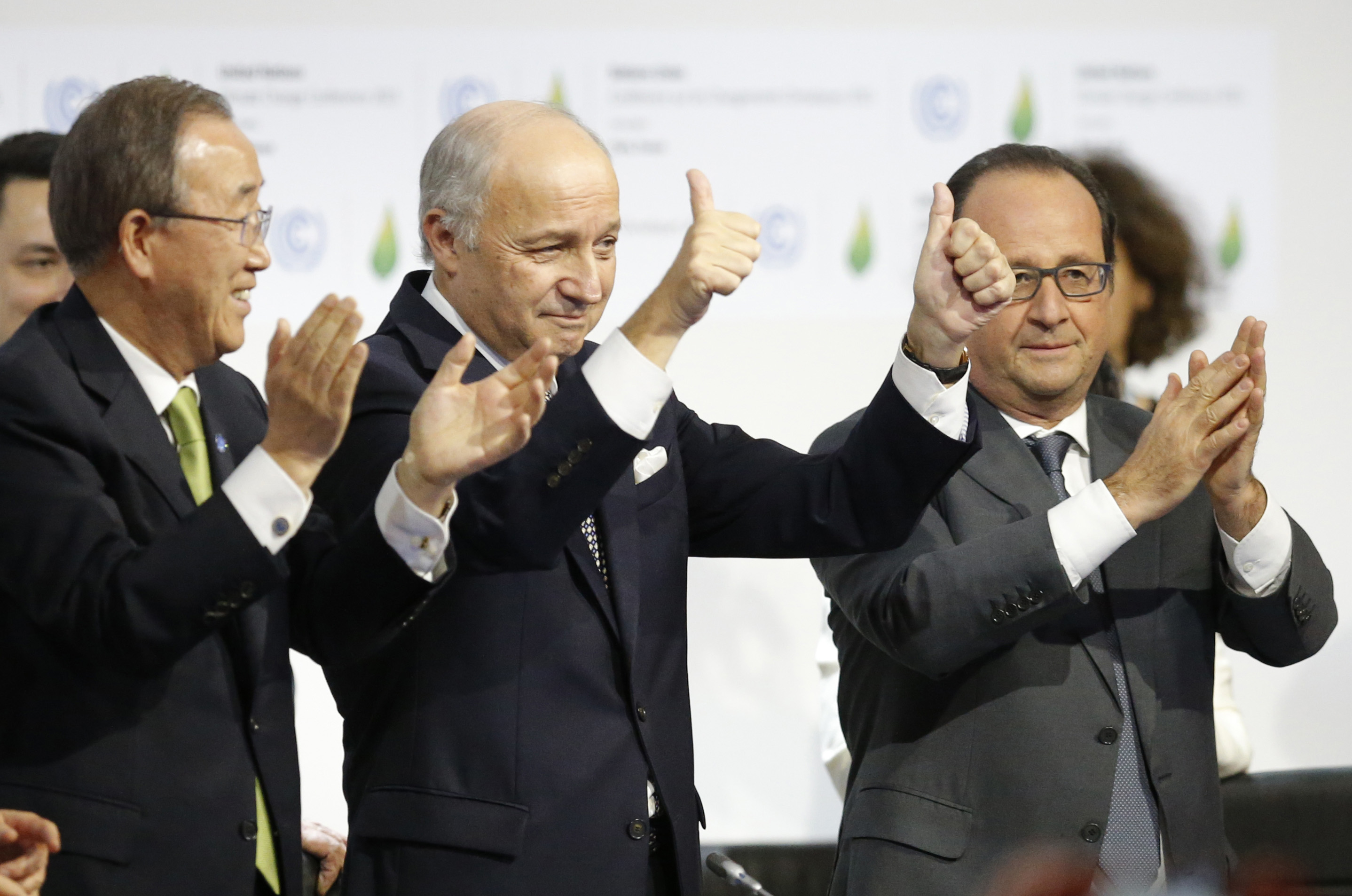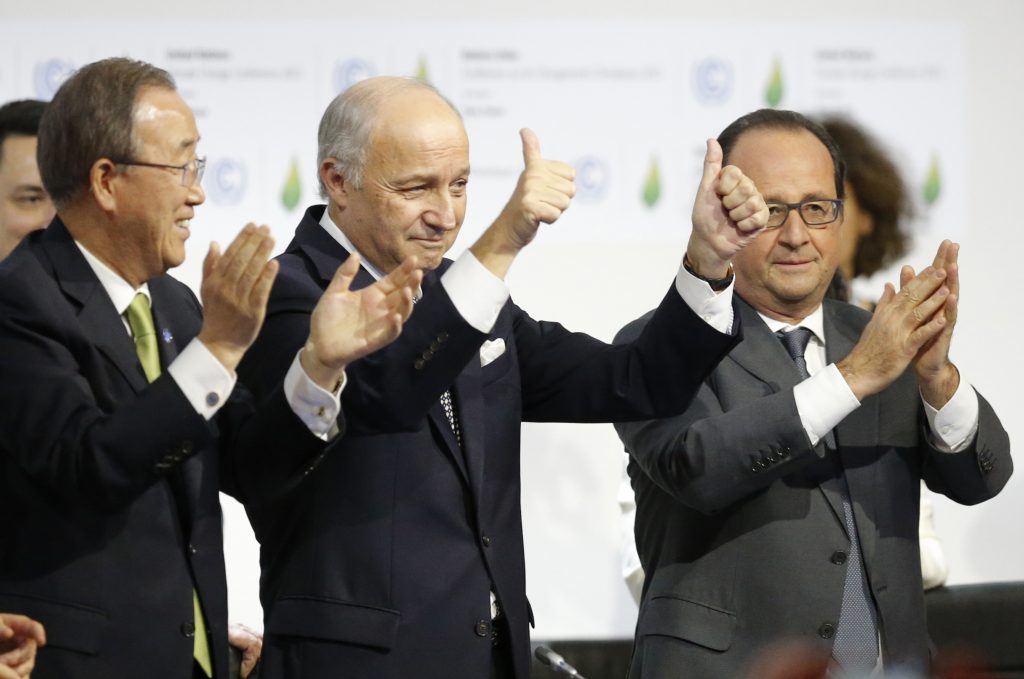 There were high expectations for Paris COP21 and the outcome of the talks more than met those expectations, producing a lasting agreement that significantly reduces global carbon pollution and begins our transition to a clean energy economy. It is a milestone pact between 190 developing and developed countries that have mutually committed to walk down a path toward a low-carbon global future.
There were high expectations for Paris COP21 and the outcome of the talks more than met those expectations, producing a lasting agreement that significantly reduces global carbon pollution and begins our transition to a clean energy economy. It is a milestone pact between 190 developing and developed countries that have mutually committed to walk down a path toward a low-carbon global future.
This historic global climate agreement will create new certainty and incentives for private industry to self regulate and adopt measures of its own that can augment targets agreed to in Paris. It provides a clear long-term market signal to private industry that we are in the midst of a transition to a clean energy economy. This will drive national, local, and private clean energy investments that, in aggregate, will enhance the international commitments made by the world’s leaders in Paris.
There is no question that this a significant start, and commits all nations to limit rising temperatures to 2°C and perhaps even 1.5°C if we are able to exceed current expectations and reduction targets through more ambitious actions and technological advancements. With that in mind, this certainly shouldn’t be expected to be the finish line for solutions to the climate crisis. This will, however, be a strong foundation upon which we can create further collective and innovative actions that get us to a true climate solution.
The good news is that this agreement creates a mutually reinforcing and sequenced series of actions that has the potential to create exponential progress on climate change mitigation. In other words, as nations make progress on their commitments coming out of Paris, and especially if many can exceed their original targets, the rate and volume of progress on climate change will grow at an ever-increasing rate.
This agreement anticipates that as national ambitions increase, so too will technological innovation and investments in clean energy, lowering the costs of these renewable energy sources in the process and, in turn, driving even faster and greater investments and, by extension, progress toward climate change solutions. Every five years, nations will revisit their targets and can ratchet up new targets as necessary based on unanticipated progress or advances.
The other key thing the Paris agreement locks in is to make all national actions transparent and all progress verifiable. All nations will be subject to rigorous monitoring of their commitments and progress toward those commitments. No nation will be able to claim gains they aren’t making because they will all be subject to the same binding standard of scrutiny and accountability for progress.
Finally, this agreement creates a true partnership between developing and developed nations, ensuring that poorer nations will be supported in their transition to low-carbon solutions and development. No longer will opponents of climate action be able to play a ddivide and conquer game, claiming economic disadvantage for the United States or any other developed countries as all nations will be working toward the same goal.
All of this means we should be able to significantly scale up energy investments in the near and long term while driving down the costs of clean energy and clean technology innovations. This should change the economic landscape such that we can make faster and faster progress toward a climate solution.
We should keep all this in mind as climate deniers and other naysayers put out their own false postmortem about what this Paris agreement means. We should also be grateful that the rest of the world is moving forward with responsible and meaningful action to address climate change.
Heather Zichal is a Senior Fellow at the Atlantic Council’s Global Energy Center. She is also a former Deputy Assistant to the President for Energy and Climate Change, as well as one of the architects of President Barack Obama’s National Climate Action Plan.
Image: From left: United Nations Secretary-General Ban Ki-moon, French Foreign Affairs Minister Laurent Fabius, President-designate of COP21, and French President François Hollande applaud during the final plenary session at the World Climate Change Conference 2015 (COP21) at Le Bourget, near Paris, France, on Dec. 12. (Reuters/Stephane Mahe)
